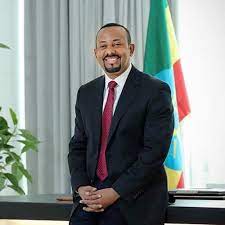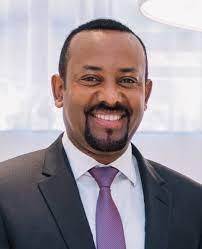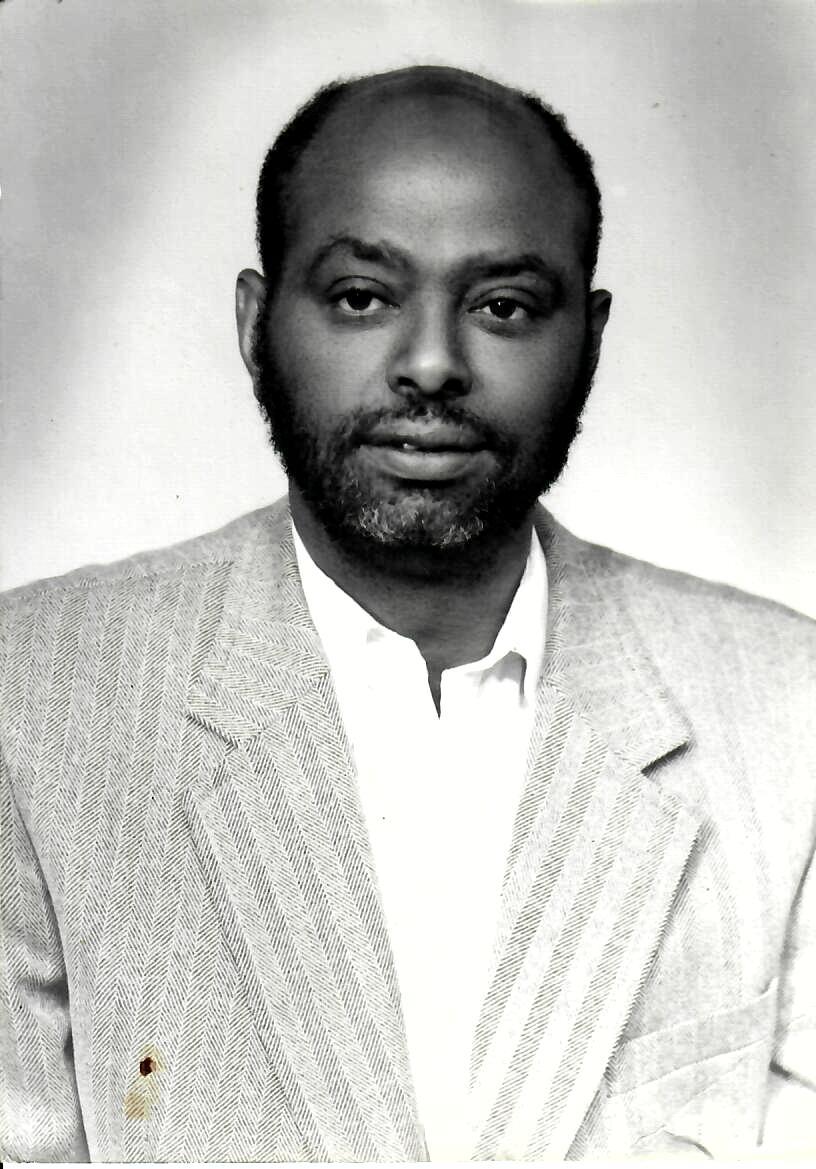
Gudina Tumsa and Dr.Abiy Ahmed
Many will disagree, question, and even be opposed to comparing Gudina Tumsa and Abiy Ahmed. But before any assumptions are made we would like for you to read and understand and we hope that it changes your heart. If not, like Gudina said, “I will try to justify my statements I have made here. If I cannot justify them I would admit that I am mistaken.” (Witness and Discipleship Pg.114)



Firstly–just to scratch the surface– we have to begin by drawing a connection with the leadership style of these two men. Gudina Tumsa was a theologian whose overarching purpose was to minister the gospel in a way that serves the “whole man'' or what is known as holistic theology: which consists of the physical, spiritual, educational, political and the economical betterment of man’s situation. Abiy Ahmed Ali is a politician who currently is the Prime-minister of Ethiopia. His style of leadership is service as he claims and believes that the purpose of politicians and the government is to better the living situation of their citizens economically, politically and ideologically. Because of the many similarities that Gudina Tumsa and Abiy Ahmed have, the Gudina Tumsa Foundation and The Mekane Yesus Seminary worked in partnership, to prepare a seminar comparing Gudina Tumsa’s holistic theology and Abiy Ahmed Ali’s Medmer philosophy
To go a step further past the surface we have to know and understand the thought pattern of both men. The most similar thought pattern both men present is their vision for unity. One amongst the Church, the other amongst a Nation.
Gudina Tumsa’s idea of unity, is about the oneness of the body of Christ, he presents his idea of this unity using the word “hibret” which translates to association or fellowship; is a theologically based idea for the Churches of different confessions in Ethiopia to find a form of unity that will allow them to work together in order help the people that they claim to serve. His idea of how “hibret'' should work is seen when he writes, “If the Tenth General Assembly votes to join the WCC the action will pave the way for the ECMY and the Orthodox to start discussions on how to discharge their responsibilities for the Ethiopian people.” (Life and Ministry Pg.136). Gudina Tumsa had a great concern for the people that he chose to serve through the power of the Gospel. He believed that cooperation amongst the Churches could serve the “whole man” in order to build a better society. Hibret is an idea that derives from Gudina’s holistic understanding of the Gospel of Jesus Christ. It is meant to create relationships between the divided churches of Christ, it is a ecumenical concept meant to develop integral humans and it is the first step on a path that would lead to oneness in the Church which is the prayer of the Lord Jesus Christ.
Abiy Ahmed Ali, the Prime minister of Ethiopia, has developed a similar idea which he calls “medmer” when translated to English the word is “synergy”. A philosophical idea meant to help find a form of unity among the many different ethnic groups in Ethiopia. The medmer idea is a political ideology developed for a government and a nation. Abiy Ahmed believes the medemer idea can help heal a nation divided by ethic differences, violence and create a better society that will bring Ethiopia into an era of prosperity. Medmer is a idea that is meant to help the government serve their people to the best of their ability. Abiy Ahmed believes that medmer is the only way forward in Ethiopia, he believes that it is powerful enough to heal generational rifts, poverty and underdevelopment. The medmer idea is a way for a divided country to create sustainable relationships and it is the path that has the capability to lead to a united Ethiopia regardless of the different ethnicities, languages and cultures. The ideas of hibret and medmer. Find their common ground firstly in the groups they are addressing. Both groups are divided even though they are supposed to be united. Another overarching key point that brings these two ideas together is that they remove the stereotype that unity is uniformity.
To begin drawing more similarities we have to begin looking into their job criterias. Firstly both politicians and theologians serve a kingdom; one serves a kingdom of earth and the other serves The Kingdom of Heaven. To go even further we may bring up the fact that both serve the needs of people. Lastly the similarities between the two positions is found in the responsibilities to the people they serve. To bring these similarities to the case of Gudina Tumsa and Abiy Ahmed we must see the commonality in the people that they serve: a multi-ethnic group of people. Abiy Ahmed leads the nation of Ethiopia which consists of 90 distinct ethnic groups. While Gudina led the Mekane Yesus Church a multi-ethnic church founded and based in Ethiopia. Oyvind M.Edie writes about Gudina’s leadership of a multi-ethnic church in this way, “The EECMY was active in many parts of Ethiopia and could not be identified with any particular ethnic group. This church was an example of integrating the various nationalities of the country,” (Life and Ministry Pg.67). Gudina’s and Abiy’s leadership comes to a crossroads, because their responses are directed to the people they serve, and their goals are intended to solve the problems facing their people today.
The similarities of these two men continue with more detail. This detail can be found when you look into the issues both men addressed through their thinking. For example issues such as hibret/medmer, interdependence, self-reliance and national/church integrity. The hibret and medmer ideas have been compared above as they are two ideologies that should be the starting point when comparing these two men.
Both Gudina Tumsa and Abiy Ahmed call for interdependence. Gudina Tumsa believed that the Church of Christ is universal and amongst this universal Church he called for interdependence. He called for the sharing of resources amongst the Church, so that the Churches may work together to further the cause of Christ and to serve the people in a holistic approach. His idea of interdependence was meant to help the Churches give help to one another and cover each other's weakness so that the ministry of the Church may be better he understood the saying “Stronger Together”. Abiy Ahmed also calls for interdependence between the government and its citizens, as he believes that if the government and the people work together it is the best way to develop a better society and economy. The interdependence between the government and the people forms trust, so that citizens believe in their government, it creates a way for citizens to get involved in raising their standard of living, leaving a brighter future for the nex generation and it creates a fast, sustainable and reliable model for the nation to develop and for that growth to reach each and every citizen. The interdependence between the government and citizens is intended for the citizens to cover the weak areas of the government and for the government to help cover the weak areas of the citizens, again pointing to the saying “Stronger together”.
Self-reliance may seem like a conflict of interest , as we just claimed both men believed in interdependence. But interdependence, by the definition of both men, does not exclude the possibility of some independence. Interdependence means covering one another's weak areas, and someone who is totally dependent cannot help themselves, much rather anyone else. Thus, Gudina Tumsa advocated that the Church be self-reliant so that it may carry out its mission in a way that it deems correct. The way that missions of that time were trying to control how the national EECMY church ministered, to its people created in Gudina the understanding that unless the church became self-reliant they would never be considered equal and that the western churches would always have a “paternalistic” view of the EECMY. Abiy Ahmed’s Medemer philosophy includes how Ethiopia can catch up to the developed nations of the world. When he refers to catching up to those nations he means, being considered equal among them and in order to do this Ethiopia needs to become self-reliant and economically prosperous. Ethiopia present day is a nation dependent on foriegn aid for many things such as development work, health care, etc… Just as the EECMY was dependent on foreign missions to complete their evanglistic and development work during the leadership of Gudina. Both individuals believe in self-reliance as a necessity to find equality, and serve their people in the way they think is best (A contextualized way). Lastly we have to mention Gudina’s idea of the Church being a paradigm for society. Gudina Tumsa was not only an advocate for self-reliance in the Church, but his idea that the church should be a model for the government meant he wished the same for the state. “Having set the goal of self-reliance for itself, the ECMY supports the goal of self-reliance for Ethiopian Society.” (Witness and Discipleship Pg.82)
Church/National integrity refers to the state of being whole or undivided. In simpler terms it means not being influenced or used for any purpose other than your own. To understand how Gudina Tumsa and Abiy Ahmed relate on the topic of integrity we have to understand their approach and the events occurring when both wrote on this topic. Gudina Tumsa’s holistic theology led him to claim that a church was a national church and thus, the church should have its own integrity, “We have come to this stage in our historical development, where as a national Church we have to maintain integrity and assert maturity”. (Witness and Discipleship Pg.109). Gudina had strong opinions on some missions that were trying to use the EECMY as an agent during his leadership. He denounced this when he wrote, “The Church of Jesus Christ can never be used as an agent by anyone except for the One who had died for her.” (Witness and Discipleship Pg.110). Gudina understood that a national Church is sovereign from the control of foreign Churches, the Church can only be controlled by God. Meaning that a national Church should have the right to interpret and find solutions for its own issues on its own merits. Coming to Abiy Ahmed, there should be no questions as to why a sovereign nation should have its own integrity. But Abiy Ahmed himself had to fight inorder to protect the sovereignty and integrity of Ethiopia as can be seen in his open letter to President Joseph Biden, Abiy writes “This optimism has been rooted in the belief that a new dispensation for Africa - US relations will materialize in 2021, and that you Presidency would usher in respect for the sovereignty of African nations.”This open letter came at a time when Ethiopia was being punished by sanctions for protecting it national interests. Abiy and Gudina Tumsa can both be seen defending the integrity of their respective platforms of service. In conclusion, both Gudina Tumsa and Abiy Ahmed faced challenges against the integrity of their institutions. The challenge was presented because of “paternalistic, colonial and neo-colonial” practices. As Gudina wrote when addressing a German mission, “This kind of paternalistic, colonial attitude can never be tolerated, can never be accepted.” (Witness and Discipleship Pg.109). And Abiy also wrote in his letter to President Joseph Biden, “African nations that have broken free from the shackles of colonialism starting for the 1950s have continued to resist the chains of colonialism that is manifesting itself in various overt and covert ways.”
In conclusion, many similarities can be drawn between Abiy Ahmed and Gudina Tumsa, from generic things such as the country they were born and served in, their positions in leadership and their style of leadership which is service. But if we look deeper and analyze both men, we are able to see beyond the surface and to the wealth they possess in their thoughts. Both men came into a leadership position at a crucial and troublesome time, one during a revolution where marxism was threatening the existence of his Church, the other came to leadership into a nation that was on the verge of state collapse. Their thoughts, reforms and leadership style is drawn from the risky environment their leadership term came to be. Their response was intended to combat the risk that faced their respective institutions. These men were able to acknowledge the issue, begin restoring their institutions' responsibility, survive the turmoil and renew how their institutions worked inorder for there to be sustainable work and change, with what God entrusted to them. Their similarities come from their experiences and their experiences shape their thought, and their thought is a solution to the crisis around them and the future ahead. We can say that Reverend Gudina Tumsa’s belief and writings that the Church is a model for society is being manifested decades later through the leadership of Prime Minister Abiy Ahmed.